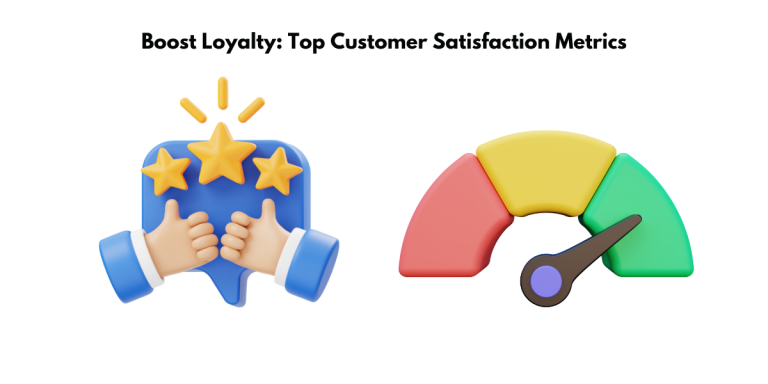What is corporate reputation management?
Corporate reputation management is the process of monitoring, evaluating, and responding to people’s opinions about a company.
It involves listening to stakeholders, customers, employees, and local communities to shape the brand’s image in the digital marketing space.
Corporate reputation is the overall estimation that an organization is held in by its internal and external stakeholders based on its past actions and the probability of its future behavior.
Managing corporate reputation involves the following:
- identifying and analyzing every mention of the business across the web
- singling out potential threats and removing any harmful information
- optimizing positive assets already online
- creating and curating content that promotes the brand and values
- ongoing monitoring and maintenance of the business’s presence in search engine results
It is important to understand that corporate reputation management is an ongoing process that requires significant time, resources, and expertise to ensure the brand delivers a message of impact and authority to its audience daily.
It cannot be done once and forgotten, nor can it be achieved with an advertising budget or clever marketing.
Building and maintaining a strong, long-lasting corporate image requires authentic action.
What is corporate reputation, and why is it important?
Corporate reputation is the collective judgment of a company or organization held by its internal and external stakeholders based on assessments of its financial, social, and environmental impacts.
It is more than just a brand image or clever marketing and cannot be built from an advertising budget, spin, or quick fixes.
Instead, corporate reputation is the quality of your brand’s footprint and how stakeholders think and feel about your brand.
The sum of all interactions with your business shapes how people interact with it now and in the future.

What makes a good corporate reputation?
A good corporate reputation is essential to success in today’s ever-changing and competitive business landscape.
It encompasses a company’s values, culture, and actions shaping how stakeholders perceive and interact.
To have a robust and positive corporate reputation, companies must focus on the factors that drive customers, stakeholders, and employees to interact with the company and focus on the positive aspects of their public image.
Transparency
Transparency can directly impact a company’s corporate reputation, as it allows stakeholders to gain a more comprehensive understanding of its actions and values.
This can help to build trust and goodwill, which can help to provide a degree of protection against future negative news.
Quality products and services
High-quality products directly impact corporate reputation by creating a positive customer experience.
Customers who experience a good quality product or service will be more likely to recommend it to their friends and family, giving the company a positive reputation.
Customers also value companies that consider their safety and prioritize their safety with high-quality products and services.
Companies that demonstrate a commitment to creating high-quality products and services also demonstrate a commitment to their customers, which increases a company’s reputation and leads to increased customer loyalty.
Additionally, offering customers more value than competing businesses can help improve corporate reputation.
Advertising campaigns that target customer needs and emphasize the benefits of a product or service can help to create a positive perception of the company in the minds of its customers.
Finally, enhancing safety features in products or services can attract customers and improve a company’s reputation.
Responsive management
Responsive management is a key feature that contributes to a good corporate reputation.
When a company responds quickly and effectively to customer feedback, external pressures, and unexpected events, they demonstrate its commitment to its customers and stakeholders and its commitment to upholding its core values.
This is essential to building customer trust and confidence that the company will stand by them and act in their best interests.
Customers and stakeholders also feel valued when companies respond to their concerns and questions, strengthening their loyalty to the company.
Responsive management helps a company maintain a good corporate reputation by demonstrating that they are reliable and capable of adapting to changing circumstances.
This shows potential customers and investors that the company is a safe bet and that potential reputational risk is manageable.
Ultimately, this can give the company an edge over competitors and help them stand out in a crowded marketplace.
Positive brand associations
Having a positive corporate reputation can bring many tangible benefits to a business.
With positive brand associations, companies can make a good corporate reputation that can help them grow.
When customers and investors view a business as reputable and trustworthy, they are more likely to invest in it and purchase its products or services.
This directly translates into increased sales and revenue.
A good corporate reputation can also help to buoy a business during difficult times, as many businesses have found during the recent pandemic.
When resources are stretched, stakeholders are more likely to support firms they trust and associate with positively.
Positive brand associations can also help a business quickly recover from any crisis it may face, such as cyber breaches or product recalls.
In addition, a good reputation can appeal to high-quality job candidates and result in better employee retention.
In short, a good corporate reputation is invaluable for securing customers, employees, and executive leaders to help an organization succeed and grow.

Good corporate citizenship
Good corporate citizenship is the practice of companies, organizations, and individuals conducting business socially responsibly.
They are considering the impact of their decisions and activities on their employees, customers, investors, communities, and the environment.
It is important in determining a company’s reputation, as it demonstrates a commitment to ethical behavior, social responsibility, and environmental stewardship.
When a company’s actions demonstrate a commitment to good corporate citizenship, it can boost its reputation and strengthen its relationships with its stakeholders, including employees, customers, investors, suppliers, and the local community.
It can also help to attract and retain top talent, increase customer loyalty, and improve investor confidence.
At its core, good corporate citizenship is about doing the right thing.
It involves ensuring that a business considers the potential impact of its decisions and activities on its stakeholders, the environment, and society.
This involves taking a long-term view, understanding and managing risks and opportunities, and being responsive to stakeholder concerns.
It also involves engaging with stakeholders and understanding their needs and expectations to ensure that decisions and activities align with their interests.
In short, good corporate citizenship is about the following:
- being a responsible and accountable corporate citizen
- understanding the needs and interests of stakeholders
- taking a long-term view that considers the impact of decisions and activities on people, the environment, and society
It is important in determining a company’s reputation and ability to attract and retain top talent, increase customer loyalty, and improve investor confidence.
Positive news coverage
Positive news coverage can help improve a company’s reputation by increasing public and stakeholder perception of the company.
Positive coverage increases positive sentiment and provides more visibility for the company.
It also allows a company to demonstrate its commitment to customer satisfaction and excellence.
Positive news coverage can also help a company reach new audiences, leading to increased sales and profits.
Furthermore, it can help a company build trust and loyalty among customers and a good reputation.
Finally, the positive news coverage can be used to help the company to address any negative perceptions that may exist and to create a culture of customer satisfaction, trustworthiness, and excellence.
Social media presence
Social media presence has become an increasingly powerful tool to measure and manage corporate reputation.
With its ability to spread information quickly and reach large numbers of people, social media can instantly shape public opinion.
This can significantly impact a company’s reputation, both positively and negatively.
On the positive side, social media can promote a company’s products and services, build positive relationships with customers, and create a positive image of the company.
Companies can create a positive reputation and build trust with customers by responding quickly to customer inquiries, interacting on forums, and providing helpful advice.
On the negative side, social media can be used to spread negative information about a company, damaging its reputation.
This can be done through reviews, comments, and other posts that express dissatisfaction with the company or its products.
Since this information can spread quickly, companies must have a strategy to respond to such criticism and take proactive steps to prevent negative content from gaining traction.
In addition, corporate social responsibility is becoming increasingly important in establishing a positive corporate reputation.
Companies must demonstrate responsible practices in environmental protection, human rights, and corporate governance to build stakeholder trust.
This can help create a positive image for the company and differentiate it from its competitors.
Overall, social media presence has a major impact on corporate reputation.
Companies must understand the importance of their online presence and take the necessary steps to maintain their reputation.

Employee engagement
Employee engagement can play a major role in creating a good corporate reputation.
Organizations with engaged employees tend to have higher morale, better customer service, and increased productivity.
This leads to higher customer satisfaction, increased sales, and improved profits.
By investing in their employees, companies can create a positive image for their brand.
Engaged employees are likelier to take pride in their job and be passionate about the company.
They will be motivated to perform to the best of their abilities and work to improve their skills.
This leads to higher quality products and services that customers trust and recommend.
A company with a good reputation will be more attractive to potential customers and employees.
A good corporate reputation also helps with employee retention, as employees are likelier to stay with an organization that values them and their work.
By investing in employee engagement, companies can build a strong corporate reputation that will benefit them for years.
Commitment to innovation
Commitment to innovation is an important factor in developing a good corporate reputation.
Companies at the forefront of innovation are seen as forward-thinking and modern, which is attractive to customers, investors, and other stakeholders.
Innovative companies have a competitive advantage and can create unique products and services, building customer loyalty and a strong base for long-term success.
Innovation also helps organizations build trust with stakeholders by demonstrating a commitment to progress and responsible business practices.
When organizations are seen as actively investing in innovation, this can go a long way to improving their reputation.
This commitment can also be seen in investment in research and development and in developing new technologies and processes.
Moreover, innovative companies can also benefit from a positive reputation in marketing, as customers are more likely to trust companies that are seen as progressive, leading the way in their industry
This can result in increased brand recognition and a positive public image, which are crucial for long-term success.
In conclusion, commitment to innovation can be a key factor in creating a good corporate reputation.
It demonstrates an organization’s forward-thinking attitude and commitment to progress, which can result in increased customer loyalty, trust from stakeholders, and improved brand reputation.
Responsible business practices
Responsible business practices can help make a good corporate reputation by demonstrating a commitment to social responsibility.
Companies that reduce their environmental footprint and prioritize sustainability initiatives can show their commitment to protecting the planet.
Such actions demonstrate to customers and stakeholders that the company is conscious of its impact on the environment and is taking action to address it, which builds trust and respect.
Additionally, responsible business practices can increase employee engagement, as employees feel their company is doing the right thing and takes their concerns seriously.
This can also translate into a more positive public image, as employees are more likely to become brand ambassadors, speaking positively about their company in public forums.
Furthermore, responsible business practices can lead to greater customer loyalty and loyalty to the brand, as customers are more likely to support brands that prioritize social responsibility.
Ultimately, these elements contribute to a strong, positive corporate reputation.

10 tips to help you successfully build a good corporate reputation
A good corporate reputation is essential for any business to succeed.
It is the key to building a successful brand, getting customers to trust your company, and increasing market value.
To ensure you are managing your corporate reputation successfully, there are 10 tips you should consider.
These tips will help you create a strong and positive corporate reputation and ensure your business continues to grow and succeed.
1. Develop a reputation strategy
Developing a reputation strategy can help you build a good corporate reputation by doing the following:
- promoting integrity and trust
- strengthening your presence in the industry and online
- appealing to high-quality job candidates and improving employee retention
- protecting your brand during times of crisis and attack
- fortifying an image partners, suppliers, and vendors want to do business with
A well-crafted reputation strategy can also help to increase brand equity, provide customers and investors with loyalty, and thus to lead to an increase in sales and revenue.
Additionally, a well-developed reputation strategy can help recover from potential crises or negative publicity, as a strong corporate reputation is a form of ‘capital’ that can be traded for trust and social recognition.
Finally, a good reputation strategy can help manage how information about the company is spread by providing a platform for accurate and positive information to be shared.
In short, developing a reputation strategy can be crucial for any company aiming to build its corporate reputation.
2. Monitor and measure your reputation
Monitoring and measuring your corporate reputation is essential to building a good reputation.
Listening to customer feedback and online reviews can provide insights into how people perceive your business and help identify improvement areas.
Additionally, tracking conversations about your business will indicate how well your brand is doing and allow you to address any issues quickly.
With the right strategies in place, you can respond to customer comments promptly and ensure that any negative feedback is addressed appropriately.
Other than that, it is important to measure the impact of your communication and marketing efforts on your corporate reputation.
By tracking changes in website traffic, social media engagement, and customer reviews, you can see the effect of your strategies and make adjustments accordingly.
You can also use tools like Google Alerts, HootSuite, and TweetDeck to monitor conversations in real time and quickly respond to questions or comments.
Monitoring and measuring your corporate reputation is the key to building a positive brand.
By keeping up with customer feedback and tracking conversations, you can identify improvement areas and ensure that your marketing and communication strategies are having the desired effect.
Additionally, analyzing data from website traffic, social media, and customer reviews can help you adjust your strategy and ensure that your reputation is the best.

3. Invest in your brand
Investing in your brand can help you build a good corporate reputation by increasing customer and investor loyalty, protecting your brand during times of crisis, and strengthening your company’s presence in your industry and online.
Through investing in your brand, you can embody integrity and generate trust among consumers, appeal to high-quality job candidates and improve employee retainment, and fortify the image vendors, suppliers, and partners want to do business with.
By doing so, you are better equipped to attract new customers, build customer loyalty, and find the talent needed to innovate and manage an effective operation.
With a good corporate reputation, stakeholders will be more likely to support your business during difficult times, and you will recover more quickly from crises.
4. Develop brand partnerships
Developing strong brand partnerships is important to building a good corporate reputation.
Brand partnerships allow companies to create a network of reliable and trustworthy relationships, which can be beneficial in several ways.
First, brand partnerships can help to generate trust with customers and other stakeholders.
When people know that other reputable organizations back a company, they are likelier to trust and do business with it.
By partnering with reliable companies, a company can demonstrate that it is reliable and trustworthy.
Second, brand partnerships can help increase a company’s visibility and recognition.
When a company partners with other well-known organizations, it can benefit from its recognition and reputation, thus increasing its reputation.
Brand partnerships can also help create a more positive image for a company, as customers and other stakeholders will view it as backed by reputable organizations.
Finally, brand partnerships can help to create stronger relationships with customers and other stakeholders.
By partnering with reliable organizations, a company can show that it takes its relationships seriously and is committed to maintaining strong relationships over the long term.
This can be beneficial in helping to build customer loyalty and trust, as well as in securing long-term relationships with suppliers, partners, and other stakeholders.
In short, developing strong brand partnerships can be an effective way to build a good corporate reputation.
By partnering with reliable organizations, a company can demonstrate its trustworthiness, increase its visibility and recognition, and create stronger relationships with customers and other stakeholders.
5. Provide consistent customer service
Providing consistent customer service is essential to building a good corporate reputation.
Positive customer service experiences create loyal customers likelier to repeat business and recommend your company to others.
Consistency in customer service also promotes company values and reinforces the company brand, which can lead to increased customer satisfaction.
Additionally, providing a high-quality product or service that meets customer expectations can also help improve your reputation and create more positive customer interactions.
A positive corporate reputation can lead to increased customer and stakeholder loyalty, brand equity, and long-term success for your business.
6. Stay up to date on trends
Staying up to date with the latest trends in your industry can be an effective way to build a good corporate reputation.
With the speed at which information travels today, keeping track of the latest news and developments is important to maintain a positive image.
Doing so allows you to effectively respond to negative conversations online and utilize the latest tools to measure and analyze sentiment for your brand.
Additionally, staying current on trends can help you support good social causes, fulfill your social responsibility, and have an effective online reputation management strategy that will ultimately increase your conversions and ROIs.
Ultimately, staying current on trends provides a strong foundation for building a positive corporate reputation that will help you attract new customers, build customer loyalty, and find the talent you need to stay competitive.

7. Listen to your customers
Listening to your customers is essential to building a good corporate reputation.
When customers feel like they are being heard, they are more likely to continue to patronize your business and even tell others about their positive experiences.
This can result in larger profits and increased success.
Additionally, providing excellent customer service is key to creating a positive impression.
Customers who have a pleasant experience with your company and its personnel are likelier to remain loyal and recommend your business to others.
This can expand your customer base and solidify your reputation.
Moreover, monitoring customer feedback and keeping track of online reviews can indicate what people think about your company, helping to ensure your business is seen in a positive light.
Good corporate reputation is essential for any business; investing in qualitative measures like focus groups can help measure people’s opinions and ensure your company’s success.
8. Respond effectively to challenges
Responding effectively to reputational challenges is important due to the increased likelihood of stakeholders – such as regulators and legislators – lashing out in an increasingly hostile business environment.
Companies must collect and analyze information about potential threats and develop alliances with new partners to mitigate such risks.
In addition, in the current climate, a company’s reputation matters more than ever before, as it directly impacts its ability to influence events with significant global implications.
Therefore, businesses need a sophisticated and well-coordinated system to respond to reputational issues quickly and effectively.
9. Use media strategically
Using media strategically can help build a good corporate reputation by increasing visibility and providing a positive tone.
Companies must remain above an “awareness threshold” with continual coverage in the leading media.
At least 20% of the stories should be positive, with no more than 10% negative and the rest neutral.
Strategic media intelligence can provide a detailed and structured analysis of what the media are saying, including the following:
- total number of stories
- the number per topic
- the source and author of each story
- the context of all the stories about other companies in the same industry
With this information, companies can better understand the public perception of their brand and shape it positively.
10. Create a culture of reputation management
Creating a culture of reputation management in your organization is essential for building a good corporate reputation.
By actively managing the company’s reputation and proactively addressing any negative feedback, companies can ensure that their message is clear and consistent and that their brand is seen in the best light.
A culture of reputation management sets a clear vision for how the company wants to be seen and helps to create a positive brand image.
It increases customer trust, strengthens the company’s presence in the industry, attracts the best job candidates, and protects the company from potential crises.
An effective online reputation management (ORM) strategy is also key to keeping the company’s reputation afloat.
By listening to online conversations, analyzing and measuring public sentiment, responding to negative feedback, and taking part in social causes, companies can ensure that their online presence is one that customers and stakeholders can trust.
Ultimately, this allows companies to scale up their conversions and ROI.
In short, creating a reputation management culture helps ensure that the company has a positive and consistent image that customers and stakeholders want to do business with.
This, in turn, can lead to increased sales, better customer loyalty, and greater success.
- Exploring the Top 20 Customer Review Websites to Amplify Your Local Business Presence - May 20, 2024
- Corporate Reputation Management: 10 Tips to Help You Build Your Company Reputation - September 7, 2023
- Online Reputation Management Strategy: 10 tips to successfully manage your online reputation - April 21, 2023







